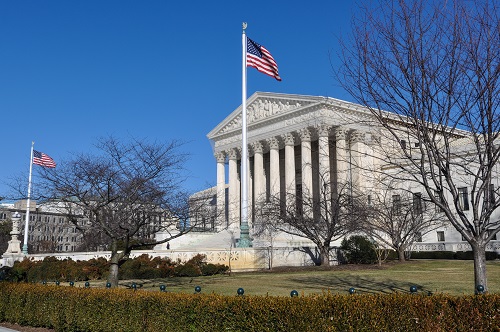Mario Draghi’s government under threat as Italy’s Five Star boycotts vote
Italy’s populist Five Star Movement has refused to support Prime Minister Mario Draghi’s national unity government in a critical parliamentary vote, plunging the country into a fresh round of political turmoil.
Draghi is now meeting President Sergio Mattarella and could potentially offer his resignation.
Five Star — the second largest party in parliament — boycotted Thursday’s vote on a €26bn package aimed at shielding Italians from the impact of worsening inflation.
Five Star’s leader Giuseppe Conte said he could no longer back Draghi’s cross-party government, which he accused of not doing enough to help families facing surging food and energy costs.
“I have a strong fear that September will be a time when families will face the choice of paying their electricity bill or buying food,” Conte said after a party meeting on Wednesday.
Despite the boycott by Five Star lawmakers, the aid package was approved in the Italian Senate by a comfortable majority. However, Draghi has said repeatedly that he would only lead a national unity government, and would not continue without Five Star, which was the largest party in parliament until a split last month.
Mattarella, who was reluctantly persuaded to accept a second term as president in January, will play a critical role in determining what happens next.
Italian stocks sold off on Thursday morning, with a FTSE gauge of equities in the country sliding more than 1 per cent. The yield on Italian 10-year government bonds rose 0.16 percentage points to 3.3 per cent, sending the gap with German 10-year yields to a monthly high as investors demand a rising premium to hold Italian debt.
The implosion of Draghi’s cross-party coalition, which could trigger earlier elections that were set for spring next year, would come at a sensitive time for Italy, which is expected to be the largest single recipient of the EU’s €750bn Covid-19 recovery fund.
A government collapse and early elections would raise doubts about Italy’s ability to pass its budget in the autumn and enact critical reforms to help accelerate the country’s long-term growth trajectory — on which the dispersal of the EU money depends.
Paolo Gentiloni, the EU’s economy commissioner, told Italian media that Brussels was watching the political crisis “with worried amazement”.
Draghi, the former European Central Bank president credited with saving the euro during the 2010 eurozone crisis, was last year asked by Mattarella to become the prime minister to lead the country still reeling from the pandemic.
As prime minister, he was credited with helping to revive the battered economy and with supervising an effective Covid vaccine rollout.
But Rome’s response to Russia’s invasion of Ukraine sparked new political tensions, given that Italy had historically maintained close ties to Moscow.
Draghi took a strong stand against the invasion and was a driving force in pushing for tough EU sanctions against Moscow. His foreign minister, Luigi Di Maio, a member of Five Star, stood firmly behind him.
However, Conte, who preceded Draghi as prime minister, questioned whether military aid to Ukraine was simply perpetuating the war. Tensions finally erupted last month when Di Maio walked out of Five Star, taking about a third of the party’s lawmakers with him, and reaffirming support for Draghi’s government.
Amid speculation of Five Star’s imminent withdrawal from the government, Conte met Draghi last week and presented several policy demands, including the cancellation of a contentious waste-to-energy plant proposed for the capital, Rome, to ease its worsening rubbish crisis.
However, he said the government had not responded to his requests. “We are absolutely willing to dialogue, to make our constructive contribution to the government, to Draghi, but we are not willing to write a blank cheque,” Conte said on Wednesday night.
In parliament on Thursday, Five Star lawmakers accused Draghi of attempting to dismantle some of their flagship populist welfare initiatives, including a citizens’ income programme and public funding for home improvements.
Other parties had indicated that they could call for an early election and that it was untenable for Draghi to remain in power if Five Star pulled out.
“If a coalition party doesn’t back a government decree, enough is enough, it seems clear that we should go to elections,” Matteo Salvini, head of the rightwing League, said before the vote.







